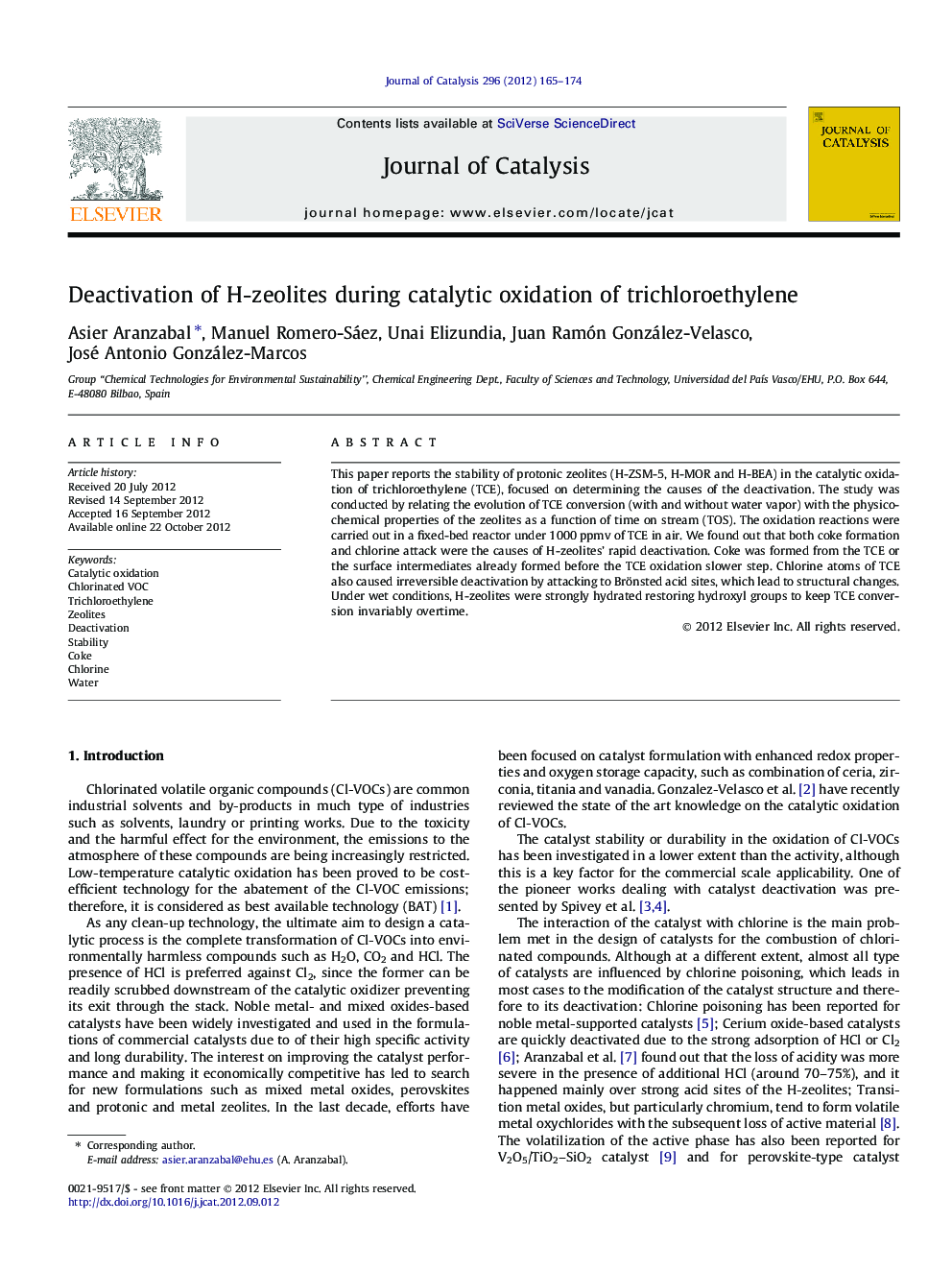| کد مقاله | کد نشریه | سال انتشار | مقاله انگلیسی | نسخه تمام متن |
|---|---|---|---|---|
| 61341 | 47576 | 2012 | 10 صفحه PDF | دانلود رایگان |

This paper reports the stability of protonic zeolites (H-ZSM-5, H-MOR and H-BEA) in the catalytic oxidation of trichloroethylene (TCE), focused on determining the causes of the deactivation. The study was conducted by relating the evolution of TCE conversion (with and without water vapor) with the physicochemical properties of the zeolites as a function of time on stream (TOS). The oxidation reactions were carried out in a fixed-bed reactor under 1000 ppmv of TCE in air. We found out that both coke formation and chlorine attack were the causes of H-zeolites’ rapid deactivation. Coke was formed from the TCE or the surface intermediates already formed before the TCE oxidation slower step. Chlorine atoms of TCE also caused irreversible deactivation by attacking to Brönsted acid sites, which lead to structural changes. Under wet conditions, H-zeolites were strongly hydrated restoring hydroxyl groups to keep TCE conversion invariably overtime.
Deactivation of H-zeolites during catalytic oxidation of trichloroethylene was investigated. Coke formation and chlorine attack were found to be the cause of zeolite’s rapid deactivation. Chlorination of acid sites caused irreversible deactivation. Under wet conditions, zeolites were not deactivated, since hydroxyl groups were hydrated and protected from chlorine attack.Figure optionsDownload high-quality image (138 K)Download as PowerPoint slideHighlights
► Coke formation and chlorine attack were the causes of zeolite’s rapid deactivation.
► Coke was formed form TCE or initial surface intermediates as parallel mechanism.
► Chlorination of acid sites caused irreversible deactivation over Brönsted sites.
► Under wet conditions, zeolites did not suffered from deactivation.
► Under wet conditions, zeolites are strongly hydrated restoring hydroxyl groups.
Journal: Journal of Catalysis - Volume 296, December 2012, Pages 165–174